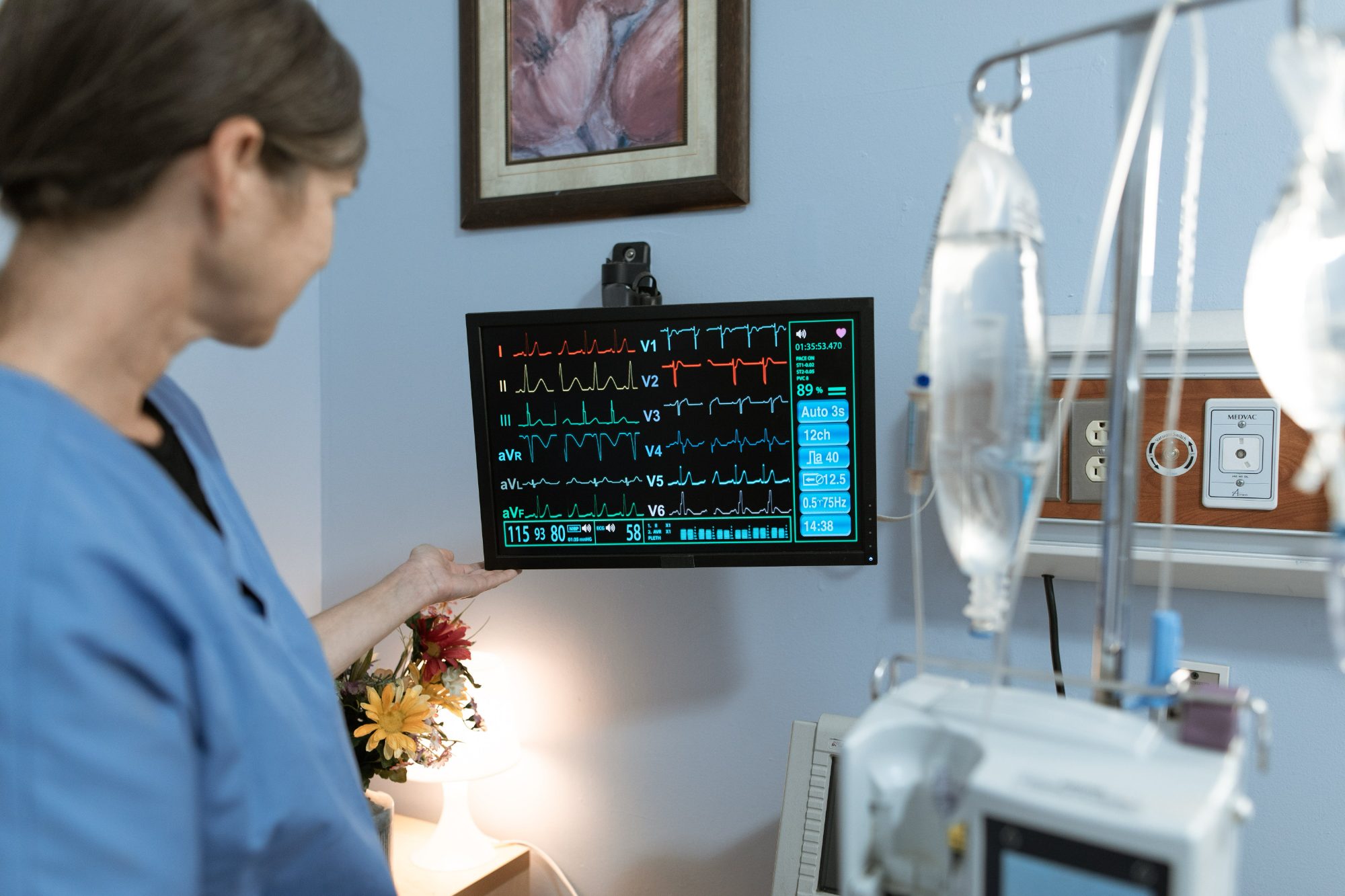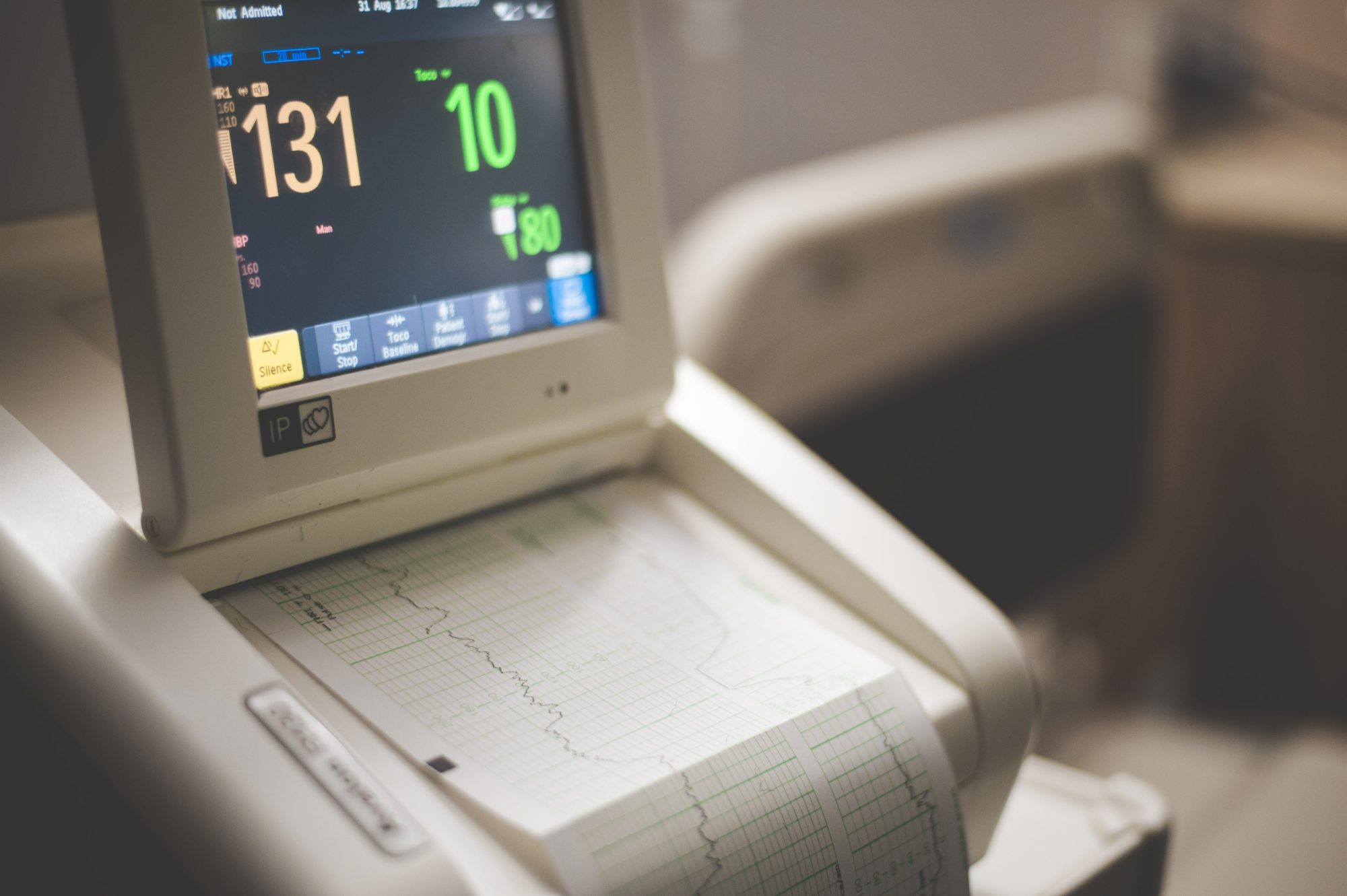Telemetry Nursing: What Is It and How to Become a Telemetry Nurse?

If you're interested in a career in nursing, you may have heard the term "telemetry nursing" thrown around. And for good reason. It's an excellent career prospect for aspiring nurses. You get to do a tremendously meaningful job caring for patients. It's also in demand and highly paid.
In this guide, we'll take a deep dive into the world of telemetry nursing, exploring the role of Telemetry RNs, the skills and education required for the job, and the steps you need to take to become a Telemetry Nurse. We'll also look into the salary potential, job outlook, and much more to ensure you have all the necessary information before starting this career.
So, whether you're just starting your nursing career or considering switching to telemetry nursing, this article will give you a comprehensive overview of this exciting job.
Let's get started.
What Is a Telemetry Nurse?
Telemetry Nurses are Registered Nurses who work in the cardiac telemetry unit specializing in the constant monitoring of cardiac patients using electrocardiograms and other high-tech devices. Their field of expertise revolves around patients suffering from heart disease and unexpected complications of their cardiac condition, as well as patients who underwent cardiac surgery and require continuous post-op monitoring.
While their job can take many forms, it primarily revolves around providing care for patients who are stable enough to be moved out of the Intensive Care Unit but still need to be under constant professional supervision. Thus, Telemetry Nurses don't work in the Cardiac Care Unit, which is a specialized ICU. Their department is different because their patients are considered stable but still require constant measuring and tracking of vital signs.
What sets Telemetry RNs apart from other nurses is their extensive knowledge and training in healthcare technology and their daily use of specialized medical instruments. Other types of nurses may not know how to operate an EKG, ECG, EMG, or blood pressure monitors, but for Telemetry Nurses, that is their job's prerequisite.

Reasons to Become a Telemetry Nurse
From good salaries to excellent professional growth opportunities, there are a plethora of reasons that recommend telemetry nursing as a career path for aspiring RNs. Let's explore some of these in more detail.
Telemetry Nurses are in high demand.
Because it's such a specialized field, telemetry nursing is always in high demand. Hospitals nationwide seek Telemetry RNs to care for patients with heart conditions, respiratory issues, and other chronic illnesses. Because of their specialized knowledge and technical skills, Telemetry Nurses provide comprehensive, quality care to cardiac patients. And since cardiovascular diseases affect nearly half of Americans, the need for qualified professionals caring for afflicted people is outstanding.
Competitive Salary
The specialized nature of the job leads to higher salaries for Telemetry Nurses. We'll get back to how much you can make working in telemetry nursing.
Opportunity for Growth
There is much room for growth and advancement if you start your career as a Telemetry Nurse. It's a great stepping stone into other nursing roles, like ICU nursing. After gaining a few years of experience, you can become a Charge Nurse, a Clinical Nurse Specialist, or even a Nurse Manager.
Diverse Patient Population
As a Telemetry RN, you will care for a diverse patient population. It can be challenging, but at the same time, it means that no two days on the job would be exactly the same. You'll always be learning and improving, growing as a nurse.
Opportunity to Make a Difference
There's no greater satisfaction to a nurse than knowing they make a real difference in their patients' lives. By monitoring patients during one of the most vulnerable times of their life and providing high-quality care, you help improve their health and well-being. What could be more rewarding than that?
Telemetry Nurses are at the forefront of innovation.
In their day-to-day job, Telemetry Nurses use cutting-edge technologies and treatments. Thus, it's a great way to stay connected to the latest medical equipment and product developments.

How To Become a Telemetry Nurse?
To become a Telemetry Nurse, you need to meet specific educational requirements. In general, you can start practicing in the field in two to four years. Let's look at a step-by-step breakdown of embracing this incredible career.
Enroll in a Nursing program.
The minimum educational requirement for a Telemetry Nurse is RN licensure. There are different paths to becoming a licensed Registered Nurse, but the two most common are an Associate's Degree in Nursing and a Bachelor's Degree in Nursing.
An Associate's Degree in Nursing (ADN) is the fastest way to RN licensure. It takes around two years to complete an ADN program, and after you finalize your studies, you are eligible to take the NCLEX-RN. Find out how to get your ADN and receive RN licensure.
A Bachelor's Degree in Nursing (BSN) is recommended for aspiring RNs. It takes longer to complete a BSN program - around four years. However, a BSN is preferred by most healthcare employers, which will significantly increase your chances of securing your dream job in telemetry nursing.
BSN degrees offer a more in-depth and comprehensive preparation for future nurses. According to a fact sheet from the AACN, better nursing education is linked to a higher quality of care, which leads to better patient outcomes and lower mortality rates. As a BSN RN, you also have more opportunities for advancement and are likely to experience better career satisfaction. Also, while ADN is still an accepted qualification for Registered Nures, the BSN is expected to become the mandatory qualification in the future. So, enrolling directly in this program is an excellent way to ensure you'll be ahead of the game at every step in your career.
Discover more reasons why getting a BSN degree is recommended for nurses.
At Nightingale College, we offer an accredited Bachelor of Science in Nursing (BSN) Program designed to prepare you thoroughly and extensively for a career in nursing. It has a blended distance format, combining online didactic instruction with on-ground experiential learning. In as few as 32 months, you can graduate with a BSN degree and embark on the next phase of your nursing journey.
Enroll into our BSN Program and advance your career in nursing!
Pass the NCLEX to Become Licenced as a Registered Nurse
Completing an accredited nursing program is only Step One on your path to RN licensure. After completing your education program, either a bachelor's or an associate's degree, you must apply for licensure with your appropriate state board of nursing and then register to take the NCLEX-RN.
The NCLEX-RN is a comprehensive standardized five-hour exam that tests whether you have the qualifications to become a Registered Nurse. This test is administered by the National Council of State Boards of Nursing (NCSBN), and it has one overarching goal: to evaluate the knowledge, skills, and abilities of aspiring RNs.
Once you pass this final exam, you are eligible to receive your nursing license and practice as an RN. In other words, Congratulations! You are now a fully-fledged nurse.
Start Working in a Telemetry Unit
Once you pass the NCLEX and become a Registered Nurse, you can start looking for jobs. The good news is positions with telemetry nursing units are available for new graduate nurses right out of college. So, polish your nursing resume, prepare for interviews, and get ready to embrace a wonderful career.
The first days up to the first year on the job can be overwhelming. When you're a new telemetry nurse, meeting new people, applying textbook knowledge to real-life situations, and learning by doing each job-related activity can be equally exciting and terrifying. Check out our guide filled with tips and tricks for new nurses to succeed during their first year on the job.
And most importantly, enjoy it! You worked hard, and you're doing extremely valuable work! You deserve to be proud of your accomplishments.
Think about Advancing Your Education
If you started your nursing career with an ADN degree and would like to advance your education to the BSN level, there's some good news for you! Bridge RN-to-BSN programs are a fast, convenient, and cost-effective way to further your education from ADN to BSN. For the most part, RN-to-BSN programs take around one year to complete and offer online instruction. This allows you to pursue a higher education degree while working, which is a great compromise for nurses who care about their schooling but cannot afford to take time off to pursue a higher degree.
Nightingale College's accredited RN-to-BSN program is the best solution for aspiring BSN nurses. It can be completed in as few as 12 months, and it's designed with working professionals in mind. The online didactic instruction makes it 100% career friendly, and you can be sure that as a result of our well-thought-out curriculum, by the end of the three semesters, you'll have advanced your nursing skill and knowledge to a much higher level.
Certification Opportunities for Telemetry Nurses
If you want to advance your telemetry nursing career, you can opt for certification. Becoming certified is not mandatory for nurses, but it has many benefits.
Holding a nursing certification in your chosen field validates your mastery of skills, knowledge, and abilities in that specific area of nursing. It proves your competence and the fact that you have distinguished yourself in your specialty, Plus, certified nurses feel more empowered and confident in their practice. The higher the nurse's education level, the better prepared they are to address even the most complex nursing situations.
Not to mention, certified nurses have access to more job opportunities, higher salaries, and increased job satisfaction.
Discover more reasons why you should consider getting certified as a Registered Nurse.
For Telemetry Nurses, some great certification options include:
- Advanced Cardiac Life Support certification from the American Heart Association. Most hospitals require nurses working in telemetry to hold an ACLS certification to ensure the best possible care for their patients.
- Progressive Care Nursing (PCCN) offered by the American Association of Critical Care Nurses. PCCN is a specialty certification for RNs who provide direct care to acutely ill adult patients.
- Cardiac Medicine Certification (CMC) is another valuable AACN specialty certification program you can pursue. It is designed for nurses who provide direct care to acutely/critically ill adult cardiac patients.
If you want to learn more about cardiac nursing roles, read our complete presentation.

Telemetry Nurse Job Description
Telemetry Nurses are responsible for a wide range of duties that require specialized knowledge and skills. In this section, let's take a closer look at the day-to-day responsibilities of a Telemetry Nurse:
- Assessing patient condition. You need to constantly monitor your patients to determine their condition and identify any changes in their vital signs
- Monitoring and adjusting specialized equipment used on patients.
- Performing stress tests and analyzing the results obtained from them.
- Identifying irregular telemetry readings and taking appropriate action.
- Reporting telemetry readings to physicians and other healthcare professionals.
- Administering medications and hanging medication drips as prescribed by the physician.
- Collaborating with a larger healthcare team to ensure the patient gets access to the highest quality care.
- Acting as a patient advocate
- Educating patients about the procedures they will undergo and providing clear instructions for post-operative care.
- Explaining test results and procedures to patients and their families in a clear and understandable way.
- Providing guidance to patients, their families, and caregivers on post-hospital care, which includes instructions on taking prescribed medication, following home care protocols, preventing diseases, and making necessary lifestyle changes.

Where Do They Work?
Generally, Telemetry Nurses work in hospital settings. They care for patients no longer in the intensive care unit but still need constant electronic monitoring. They can also find employment in Med/Surg units, emergency departments, ICUs, pediatric floors, and oncology floors.
How Much Do Telemetry Nurses Make?
Due to it being a highly specialized field, Telemetry Nurses can expect to earn a competitive salary. According to ZipRecruiter, the average wage of RNs working in telemetry positions is $120,512 per year.
However, salaries can vary depending on factors such as location, years of experience, and education level.
Discover what salary nurses make by state, across the US.
Telemetry nursing Career Outlook
Healthcare professionals, in general, enjoy a great job outlook. According to projections from the Bureau of Labor Statistics, there will be over 200,000 new jobs for nurses throughout the decade. Factoring in cardiovascular issues being a leading health concern among Americans, it's fair to assume a good number of those positions will go to Telemetry Nurses who are equipped with the knowledge and skills to care for patients suffering from critical this type of issues.
What Skills Do Telemetry Nurses Need to Excel at their Job?
Successful Telemetry Nurses require unique skills to provide patients with the best care. Here are some of the most important:
Attention to detail
You need to be meticulous in recording patient information and interpreting telemetry readings. Even the slightest mistake could have significant consequences for the patient's health. When it comes to cardiac patients, even the smallest fluctuation on the machine can mean a change, either good or bad - but essential, nonetheless. Observing, documenting, and sharing these changes with doctors promptly is essential.
Ability to work in a demanding environment
The telemetry unit can be stressful at times, so RNs working here must be able to work under pressure, think quickly on their feet, and respond to unexpected situations calmly and composedly.
Effective communication
Telemetry nurses must communicate effectively with patients, their families, and other healthcare professionals. They should be able to explain complex medical procedures and treatments in a way that is easy to understand.
Willingness to learn
Telemetry nurses need the technical know-how to keep up with the job demands. At the same time, because their field of work revolves around electronic equipment and technological devices, they need to keep up with the latest medical technology advancements.
Are You Ready to Become a Telemetry RN?
Telemetry nursing is an equally rewarding and challenging career path. It asks for technical competence, critical thinking, empathy, and strong communication, but it also offers high salaries and opportunities for growth and advancement.
If you want to become a Telemetry Nurse, we are here to help you. Nightingale College's BSN program will prepare you for a career in nursing, equipping you with the knowledge and skills necessary to succeed as a Telemetry RN. If you're an ADN-trained nurse looking to advance your education, our RN-to-BSN degree is the program for you!
Enroll today and get ahead in your nursing career.

